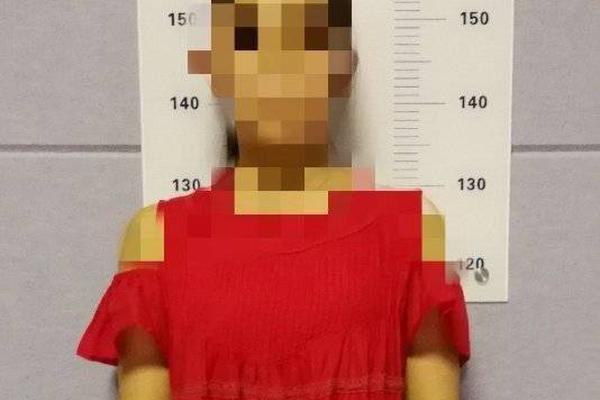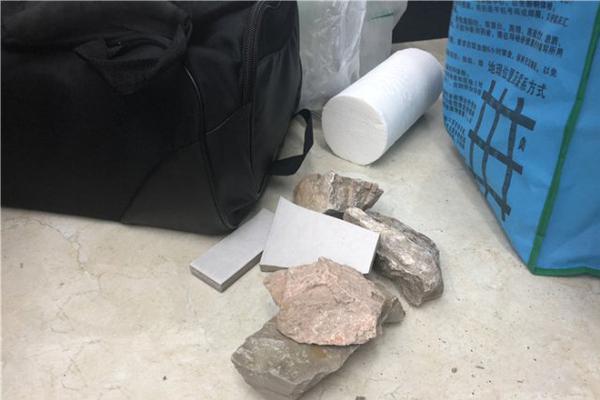
By KATHY MASAOKA
NCRR Reflects on the Lessons of the 1981 Commission Hearings:
For Japanese Americans nationwide and in Los Angeles, this August marks two life-changing events in our history. It is the 40thanniversary of the Commission on Wartime Relocation and Internment of Civilians (CWRIC), which held hearings in cities across the country in 1981, including in Los Angeles on Aug. 4-6, and it is the anniversary of our community winning redress with the signing of the Civil Liberties Act of 1988 on Aug. 10.
Members of the Nikkei for Civil Rights & Redress (NCRR, then known as the National Coalition for Redress/Reparations) took this significant moment to reflect on that history and its impact on the Japanese American community.
Miya Iwataki:NCRR fought hard for CWRIC hearings beyond two or three days in Washington, D.C. with academics, legislators and “community leaders.” As a grassroots organization, we believed the real truth about the camps should come from the Issei and Nisei who lived it; and we advocated for hearings in every city with a significant Japanese American population. It paid off! The heartfelt, courageous testimonies by our people put a human face on the WWII concentration camp experience — and deeply impacted the trajectory of our redress/reparations campaign.
Jim Matsuoka:The hearings were a chance for the Japanese Americans to express their feeling … free from the deceit and propaganda about what had happened. It was a chance to finally tell OUR story. How our community was destroyed and how individual lives and dreams were forever changed and for so many, forever lost!
Richard Katsuda:Prior to the commission hearings and the redress movement, Japanese Americans bought into the narrative of: “We were all cooperatively obedient and quietly submitted to the exclusion and incarceration.” The transformation from otonashii(quiet) to yakamashii (noisy) began with the commission hearings, but it’s an ongoing process of healing and education.
June Hibino:The CWRIC hearings opened the floodgates and Japanese Americans throughout the country — three generations — spoke out. I was very lucky to attend the L.A. and S.F. hearings (where I testified). The moving stories of pain and loss and post-camp trauma — many of which were heard for the first time — educated not only the hundreds in attendance, but the entire Japanese American community and the American public at large about the U.S. concentration camps. The video footage of the L.A. hearings continues to educate successive generations of Japanese Americans whose grandparents and great-grandparents have already passed on.
Mike Murase:The cumulative impact of the emotional, angry, or tearful testimonies by former incarcerees after 40 years of near-silence and gaman (endure) was a defining moment for the Japanese American community when people stood up for justice for themselves. For me, participating in building a movement, giving common people a voice, uniting all who can be united within the JA community, and building bridges with other communities are enduring legacies of the redress/reparations struggle of the 1980s, arguably even more than the $20,000 compensation.
Learning from HR 40 and Reparations for African Americans
As we commemorate and celebrate as a community, we cannot ignore the events of the past year. The murder of George Floyd opened the eyes of so many and forced us to look at this country’s legacy of racism and slavery. HR 40, the bill to study and to recommend reparations for African Americans, was first introduced by the late Congressman John Conyers in 1989 and it is now finally gaining momentum.
NCRR had long supported reparations for Black people and is eager to see the passage of HR 40. We joined with the Nikkei Progressives to form a joint committee called the NP/NCRR Reparations Committee to educate ourselves about the history of slavery, its continued legacy and the history and current demands for reparations by Black-led organizations. Again, our eyes were opened by what we learned and reinforced the importance of continuing to learn from our own histories.
Hearing how these organizations like the Movement 4 Black Lives and the National Coalition of Black for Reparations in America (N’COBRA) defined reparations also challenged us to rethink our own fight for redress and what solidarity means. Here are some of those reflections:
Janice Yen:Growing up I heard the Poston stories that my aunts and uncles talked about … hot, dusty summers, poor food, friends and relatives living close together. They had fond memories of life in pre-camp Watsonville and Santa Cruz and I never heard talk about civil rights violations during WWII. My grandparents were Japanese immigrants, and I took for granted that camp was another hardship that we farmers had to endure. The testimonies at the CWRIC hearings were a stark dose of reality, and I became even more resolved to support the civil and human rights of all who were under siege. Today I support HR40, the legislation in Congress to study reparations for African Americans.
Kathy Masaoka:Hearing the stories and history of the Nisei and Issei changed us, the Sansei, and changed the community. The truth behind the incarceration could not be hidden or glossed over. There was no justification and no need to feel any shame. It was the government that had betrayed us and acted purely out of greed and racism. Similarly, HR 40 is an opportunity for all of us to learn about the institution and lasting legacy of slavery and the underlying racism that continues to destroy Black lives and all communities of color.
Kay Ochi:The unjust treatment of Japanese Americans was largely ignored, dismissed until the community stood up to the government in 1981 and told their stories. Little was taught in schools about the wartime incarceration. This omission reflects the beliefs of the time that the imprisonment of its citizens was warranted, necessary. The government’s unconstitutional actions were widely accepted.
June Hibino:The HR 40 Study Commission can be one important way to bring forward the voices of African Americans throughout the country. For too long our understanding of slavery and its damaging and continuing legacy has been shallow, ignored, or even worse. distorted. The hearings — if embraced by the Black community — can bring forward this true and devastating history to the forefront of American consciousness — where it needs to be in order for any meaningful change to occur.

Mike Murase:Even though conditions may be different today, I think the fundamental nature of the power dynamics in society, racism, and the wealth gap remains. We still have the task of finding ways to build a broad, nationwide, multi-racial movement for social justice, and the masses will be the makers of history. The HR 40 commission will be an opportunity for all of us to listen and learn from the stories of Black people, from broader historical contexts to the most personal testimonies of pain, trauma and generational struggle. Just as it was important for Japanese Americans to determine our path towards redress and reparations, we fully stand behind the Black community as they determine their own path forward.
On Aug. 28 at 6 p.m., NP/NCRR Reparations Committee will be hosting a virtual program to commemorate and celebrate the CWRIC hearings’ 40thanniversary and the passage of the Civil Liberties Act of 1988 and our commitment to see passage of HR 40 and reparations for Black people. Join us to hear testimonies from the 1981 CWRIC Los Angeles hearings as well as testimonies by Japanese Americans in support of HR 40 today. We will be joined by leaders of the HR 40 Coalition and learn how we can continue to build solidarity and community together and win!
On Aug. 2, in commemoration of the CWRIC’s 40thanniversary and to make the testimonies more accessible to the public, Visual Communications and NCRR began a rollout of all 26 hours of the Los Angeles CWRIC hearings with reflections shared by younger and older generations. Visit http://vc.media.org.
 Kiyoshi Kurosawa’s ‘Before We Vanish’ Now Playing
Kiyoshi Kurosawa’s ‘Before We Vanish’ Now Playing
 45 best gifts for her 2023: Unique picks she'll love
45 best gifts for her 2023: Unique picks she'll love
 E3, the video game expo, officially shuts down forever
E3, the video game expo, officially shuts down forever
 Best Echo Dot deal: Save 53% on the Echo Dot Kids (5th gen, 2022 release) at Amazon
Best Echo Dot deal: Save 53% on the Echo Dot Kids (5th gen, 2022 release) at Amazon
 Sakura Sunday
Sakura Sunday
 Best Kindle deal: Get the Kindle Scribe Essentials bundle for $125 off
Best Kindle deal: Get the Kindle Scribe Essentials bundle for $125 off
 Best stocking stuffer deals: Small, cutesy, and affordable items from Amazon, Walmart, and Best Buy
Best stocking stuffer deals: Small, cutesy, and affordable items from Amazon, Walmart, and Best Buy
 The best video game remakes of 2023
The best video game remakes of 2023
 Yuasa’s ‘Mind Game’ at Nuart
Yuasa’s ‘Mind Game’ at Nuart
 'Brooklyn Nine
'Brooklyn Nine
 Early Works of Seijun Suzuki at Egyptian Theatre
Early Works of Seijun Suzuki at Egyptian Theatre
 Best Buy 3
Best Buy 3
![[Update] This app sends Android texts as blue 'iMessage' bubbles](https://helios-i.mashable.com/imagery/articles/03ZkTUvyAUtG4tEb15yp52Q/images-1.fill.size_2000x1125.v1701825914.png) [Update] This app sends Android texts as blue 'iMessage' bubbles
[Update] This app sends Android texts as blue 'iMessage' bubbles
 E3, the video game expo, officially shuts down forever
E3, the video game expo, officially shuts down forever
 Hinamatsuri Celebration at GVJCI
Hinamatsuri Celebration at GVJCI
 5 ways AI changed the internet in 2023
5 ways AI changed the internet in 2023
 Best Apple deal: Apple Watch Series 8 (GPS + Cellular, 45mm) on sale for $349
Best Apple deal: Apple Watch Series 8 (GPS + Cellular, 45mm) on sale for $349
 CU vs. UM basketball without cable: Game time, streaming deals, and more
CU vs. UM basketball without cable: Game time, streaming deals, and more
 Returning to Her Parents’ Musical Roots
Returning to Her Parents’ Musical Roots
 Tesla recall over autopilot problems affects millions of U.S. cars
Tesla recall over autopilot problems affects millions of U.S. cars
Celebrity takes part in super awkward interview, magazine prints entire transcriptWoman's Tinder profile pic prompts fierce toilet paper debateThe biggest typos Donald Trump deleted from Twitter in 2018 (so far)Carrie Gracie donates backdated BBC pay to help other women fighting for equalityObama says we have a 'right to be concerned' but to focus on 'hope'The tiny country of Swaziland held its first ever Pride event on SaturdayWoman wakes up in morgue after being declared deadEngand's Dele Alli busts out Fortnite dance in World Cup matchA collection of photos of Neymar lying on the ground.Here's why these 7 celebrities shouldn't run for president in 2020 Ocean View School District Seeks Investigation of Wintersburg Fire Next on 'Asian Pacific America': Jon Nakamatsu, Dr. Wailani Sung, Marisa Hamamoto Comeback for Gardena Koi Show Disney+ Offers Island Take on Classic Series with ‘Doogie Kamealoha, M.D.’ 3 dead in suspected food poisoning incident in Taiwan Exhibition brings Silk Road culture to universities in Taiwan San Francisco Manju Matsui Eulogizes Former Rep. Fazio LA vs. Hate Unveils Anti Civil groups in Taiwan protest distortion of UNGA Resolution 2758
0.158s , 14258.421875 kb
Copyright © 2025 Powered by 【average looking latinas having sex free video】Celebrating the 40th Anniversary of the Commission Hearings and Continuing the Legacy of Redress,Global Hot Topic Analysis